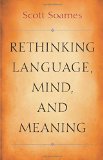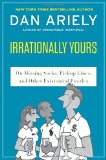new book – ‘Why Information Grows: The Evolution of Order, from Atoms to Economies’ by Cesar Hidalgo
June 4, 2015
Why Information Grows: The Evolution of Order, from Atoms to Economies by Cesar Hidalgo (Basic Books, 2015)
(kindle ed.), (amazon.co.uk), (UK kindle ed.)
Book description from the publisher:
What is economic growth? And why, historically, has it occurred in only a few places? Previous efforts to answer these questions have focused on institutions, geography, finances, and psychology. But according to MIT’s antidisciplinarian César Hidalgo, understanding the nature of economic growth demands transcending the social sciences and including the natural sciences of information, networks, and complexity. To understand the growth of economies, Hidalgo argues, we first need to understand the growth of order.
At first glance, the universe seems hostile to order. Thermodynamics dictates that over time, order–or information–will disappear. Whispers vanish in the wind just like the beauty of swirling cigarette smoke collapses into disorderly clouds. But thermodynamics also has loopholes that promote the growth of information in pockets. Our cities are pockets where information grows, but they are not all the same. For every Silicon Valley, Tokyo, and Paris, there are dozens of places with economies that accomplish little more than pulling rocks off the ground. So, why does the US economy outstrip Brazil’s, and Brazil’s that of Chad? Why did the technology corridor along Boston’s Route 128 languish while Silicon Valley blossomed? In each case, the key is how people, firms, and the networks they form make use of information.
Seen from Hidalgo’s vantage, economies become distributed computers, made of networks of people, and the problem of economic development becomes the problem of making these computers more powerful. By uncovering the mechanisms that enable the growth of information in nature and society, Why Information Grows lays bear [sic] the origins of physical order and economic growth. Situated at the nexus of information theory, physics, sociology, and economics, this book propounds a new theory of how economies can do, not just more, but more interesting things.
Google Books preview:
See also: Author’s website







